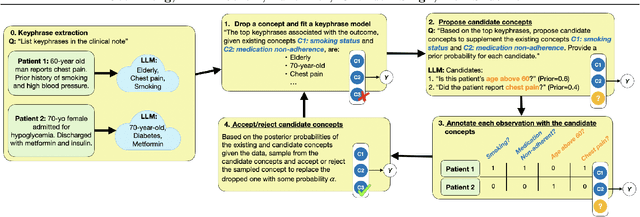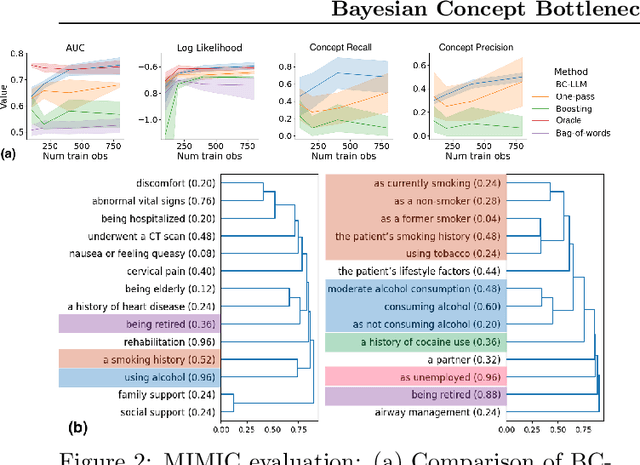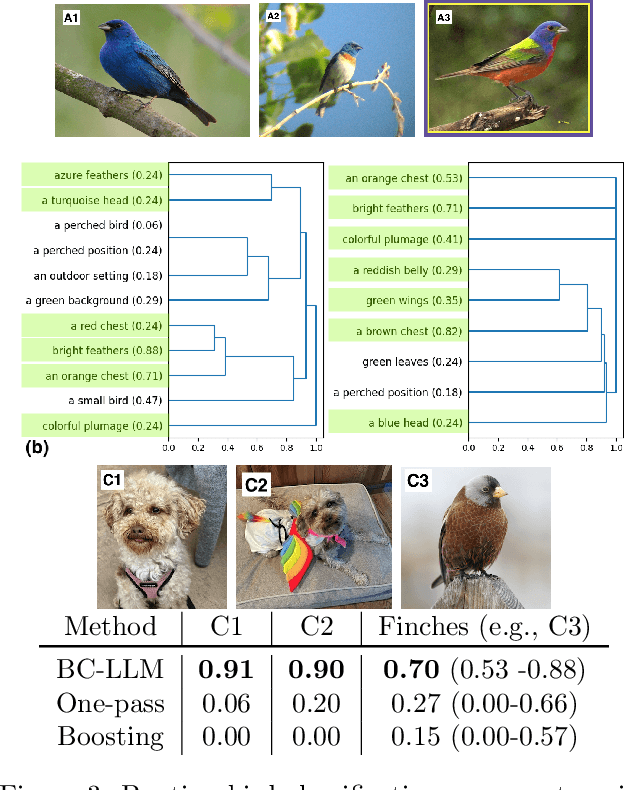Luke Zier
Bayesian Concept Bottleneck Models with LLM Priors
Oct 21, 2024



Abstract:Concept Bottleneck Models (CBMs) have been proposed as a compromise between white-box and black-box models, aiming to achieve interpretability without sacrificing accuracy. The standard training procedure for CBMs is to predefine a candidate set of human-interpretable concepts, extract their values from the training data, and identify a sparse subset as inputs to a transparent prediction model. However, such approaches are often hampered by the tradeoff between enumerating a sufficiently large set of concepts to include those that are truly relevant versus controlling the cost of obtaining concept extractions. This work investigates a novel approach that sidesteps these challenges: BC-LLM iteratively searches over a potentially infinite set of concepts within a Bayesian framework, in which Large Language Models (LLMs) serve as both a concept extraction mechanism and prior. BC-LLM is broadly applicable and multi-modal. Despite imperfections in LLMs, we prove that BC-LLM can provide rigorous statistical inference and uncertainty quantification. In experiments, it outperforms comparator methods including black-box models, converges more rapidly towards relevant concepts and away from spuriously correlated ones, and is more robust to out-of-distribution samples.
 Add to Chrome
Add to Chrome Add to Firefox
Add to Firefox Add to Edge
Add to Edge